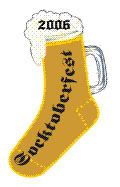This being a widow, I see now, means exposure to one injustice after another. (For example, if he had died 64 days later, after being granted disability payments, I would have gotten 17,000 NIS for burial expenses. Because Benjy was so sick that he only lived 27 days after diagnosis, and so saved the government the disability benefits, I get nothing.) Today's, though, really makes me burn.
Today's mail brought a bill for 632 NIS from Magen David Adom, for "transportation and treatment of Benjamin Cohen." Logical enough, had they done any transportation or treatment. However, due to MDA's own screw-ups, they did neither, but still want their pound of flesh.
Within a few minutes of Benjy's unofficial death, one of our neighbors took a break from the resuscitation efforts to call for a Critical Care Unit. Five minutes later we are told that the CCU at the bottom of our hill is out of commission with a flat tire. A few minutes after that MDA called for a regular ambulance from a town 25 minutes away.
In the meantime, since there was no CCU available, the army sent one of its Critical Care Ambulances, fully loaded and staffed by a doctor. The MDA regular ambulance finally arrived 25 minutes after being called (37 minutes after Benjy had died) -- the same travel time it takes a car not going over speed limit. 18 minutes after the MDA ambulance got here, the army doctor declared the death. The MDA volunteer printed out a report (which stated that resuscitation had been done by a different medical team, and that the death had been declared by a non-MDA physician) and left, with Benjy stretched out on my living room floor.
I tried speaking to someone at MDA when the mail came in, trying to understand: if there was no transportation and no treatment, what am I being charged for? The man on the other end of the phone said it was for the declaration of death. So I found the phone number of the doctor who declared the death and he confirmed that he came with the army ambulance.
Riddle me this: MDA came too late to help. If there had been any chance of saving Benjy, it would have required the critical care unit, which was sidelined -- how stupid a reason is this to die? -- because of a flat tire. Since they didn't do a blessed thing because of their own incompetence (Hi. You're an ambulance service. Maybe you should periodically check your vehicles before they're needed?) do they really deserve to make some money off Benjy's death?
Sunday, July 20, 2008
Wednesday, July 09, 2008
30 for Benjamin Cohen Z"L
The first 30 days of mourning for Benjy are almost over. If anyone reading would like to attend the evening in his memory, here are the details:
Wednesday July 16 2008, 13 Tammuz 5768, Har Bracha
18:45 unveiling in the Har Bracha cemetery
The rest of the schedule will take place in the Har Bracha synagogue:
19:15 Mincha
19:30 Father/son study
20:15 Maariv
20:30 siyum mishnayot, divrei Torah, light refreshment

Wednesday July 16 2008, 13 Tammuz 5768, Har Bracha
18:45 unveiling in the Har Bracha cemetery
The rest of the schedule will take place in the Har Bracha synagogue:
19:15 Mincha
19:30 Father/son study
20:15 Maariv
20:30 siyum mishnayot, divrei Torah, light refreshment

Wednesday, July 02, 2008
I am not ready for this, but...
I haven't posted for a long time. I was so involved in the year of mourning for my mother that I could spare no mental energy for much of anything else. Then I was traveling with The Spouse, and then it was time to get ready for Pessach. And then --
The Spouse had been in America, working like the devil, from Sukkot until just before Pessach. Two weeks before he came home he went to a convention and caught a cold, which developed into a nagging cough. Chol HaMoed Pessach he went to a doctor, who thought the cough was a side effect of his high blood pressure medication and switched his pills. No joy. Then off to an ENT, who thought it was allergies, and prescribed pills and potions and inhalations. Still no help. Off to the lung doctor, who calls for X-rays.
The X-rays show lots of fluid in the lungs, so back to the lung doctor. He says it's pneumonia, and since we live so far out of town, The Spouse should go into the hospital for a week. We head to the hospital, where they draw blood and check his oxygen saturation level -- about 85. They slap oxygen up his nose ("Up your nose with a rubber hose, hon") and we wait for service.
Later that night they aspirate about a liter of fluid from his right lung and send him for chest X-rays and a CT. We spend the night waiting in a corridor, he on a gurney and I on a chair, while he's being pumped full of antibiotics. The next day we spend in the corridor. Toward midnight of the second night they finally put him into a curtained off area with three other people, an area in which I can at least stretch out on the floor to sleep. We spend another day and a half there, and they released him on Friday with major doses of oral antibiotics.
Sunday May 18 he had trouble breathing, and the local paramedic sent us back to the hospital. This time we get a curtained-off triple room in the ER from the start, and since new X-rays show more fluid in the lungs, they inserted a drainage tube first thing in the morning on Monday. On Tuesday the doctor told us we're moving up to a ward -- oncology. The fluid they had aspirated that first night was sent, as a routine matter, for testing, and came back positive for "growth cells."
While we were waiting for a room on the ward, The Spouse had convulsions and passed out. When he came to, the doctor ordered a head CT. The next day the oncologist comes to see us -- they still can't see the growth in his lungs, but the head CT shows two growths in his brain, and they can also see a growth on his adrenal gland. On Thursday they give him a full torso CT and find the growth -- the size of a man's fist -- in his right lung, and small growths on his mediastinum. Final diagnosis:
Stage IV metastasic non-small cell carcinoma of the lungs
malignant pleural effusion
brain and adrenal metastases
His condition, the doctor said, was inoperable and incurable. His projected life expectancy was 4 months; if all the treatments worked well, he might have up to 14 months.
The next day, Friday, The Spouse was given his first chemo treatment (55 mg cisplatin, 55 mg navelbine) and on Sunday we were moved to Hadassah Ein Karem for whole brain radiation. (Shaarei Tzedek doesn't have the equipment to do radiation.) While there he got another dose of chemo.
After 10 days of radiation, on June 5, we returned to Shaarei Tzedek. That Sunday we came home for the holiday of Shavuot, with an appointment to go back on June 15 for his weekly chemo treatment, and on July 1 we were to go for a new head CT. Other than that, we were free to be at home.
On June 17, at 1:20 pm, he had another set of convulsions and died in my arms, in our home. Up until the end he was optimistic and working, telling his clients he would be back in the States after Sukkot. It was only about an hour and a half before he died that he first said "I'm afraid."

(taken at 11:35 am on June 17, 2008; hard at work e-mailing clients)
Rabbi Benjamin Cohen
22 Nissan 5716-14 Sivan 5768
April 3 1956-June 17 2008
Yehi zichro baruch
The Spouse had been in America, working like the devil, from Sukkot until just before Pessach. Two weeks before he came home he went to a convention and caught a cold, which developed into a nagging cough. Chol HaMoed Pessach he went to a doctor, who thought the cough was a side effect of his high blood pressure medication and switched his pills. No joy. Then off to an ENT, who thought it was allergies, and prescribed pills and potions and inhalations. Still no help. Off to the lung doctor, who calls for X-rays.
The X-rays show lots of fluid in the lungs, so back to the lung doctor. He says it's pneumonia, and since we live so far out of town, The Spouse should go into the hospital for a week. We head to the hospital, where they draw blood and check his oxygen saturation level -- about 85. They slap oxygen up his nose ("Up your nose with a rubber hose, hon") and we wait for service.
Later that night they aspirate about a liter of fluid from his right lung and send him for chest X-rays and a CT. We spend the night waiting in a corridor, he on a gurney and I on a chair, while he's being pumped full of antibiotics. The next day we spend in the corridor. Toward midnight of the second night they finally put him into a curtained off area with three other people, an area in which I can at least stretch out on the floor to sleep. We spend another day and a half there, and they released him on Friday with major doses of oral antibiotics.
Sunday May 18 he had trouble breathing, and the local paramedic sent us back to the hospital. This time we get a curtained-off triple room in the ER from the start, and since new X-rays show more fluid in the lungs, they inserted a drainage tube first thing in the morning on Monday. On Tuesday the doctor told us we're moving up to a ward -- oncology. The fluid they had aspirated that first night was sent, as a routine matter, for testing, and came back positive for "growth cells."
While we were waiting for a room on the ward, The Spouse had convulsions and passed out. When he came to, the doctor ordered a head CT. The next day the oncologist comes to see us -- they still can't see the growth in his lungs, but the head CT shows two growths in his brain, and they can also see a growth on his adrenal gland. On Thursday they give him a full torso CT and find the growth -- the size of a man's fist -- in his right lung, and small growths on his mediastinum. Final diagnosis:
Stage IV metastasic non-small cell carcinoma of the lungs
malignant pleural effusion
brain and adrenal metastases
His condition, the doctor said, was inoperable and incurable. His projected life expectancy was 4 months; if all the treatments worked well, he might have up to 14 months.
The next day, Friday, The Spouse was given his first chemo treatment (55 mg cisplatin, 55 mg navelbine) and on Sunday we were moved to Hadassah Ein Karem for whole brain radiation. (Shaarei Tzedek doesn't have the equipment to do radiation.) While there he got another dose of chemo.
After 10 days of radiation, on June 5, we returned to Shaarei Tzedek. That Sunday we came home for the holiday of Shavuot, with an appointment to go back on June 15 for his weekly chemo treatment, and on July 1 we were to go for a new head CT. Other than that, we were free to be at home.
On June 17, at 1:20 pm, he had another set of convulsions and died in my arms, in our home. Up until the end he was optimistic and working, telling his clients he would be back in the States after Sukkot. It was only about an hour and a half before he died that he first said "I'm afraid."

(taken at 11:35 am on June 17, 2008; hard at work e-mailing clients)
Rabbi Benjamin Cohen
22 Nissan 5716-14 Sivan 5768
April 3 1956-June 17 2008
Yehi zichro baruch
Subscribe to:
Comments (Atom)












